Notice of Online Archive
This page is no longer being updated and remains online for informational and historical purposes only. The information is accurate as of the last page update.
For questions about page contents, contact the Communications Division.
Faculty and staff complete this thought in honor of Women's History Month
March is Women’s History Month, an opportunity to recognize the female scholars, scientists, and trailblazers whose contributions have influenced and empowered future generations. In honor of this national celebration, faculty and staff from across Lafayette’s campus reflect on the women who encouraged and inspired them.
If this sparks your own memories of a female role model who helped shape your own history, particularly at Lafayette, please share your comments below.
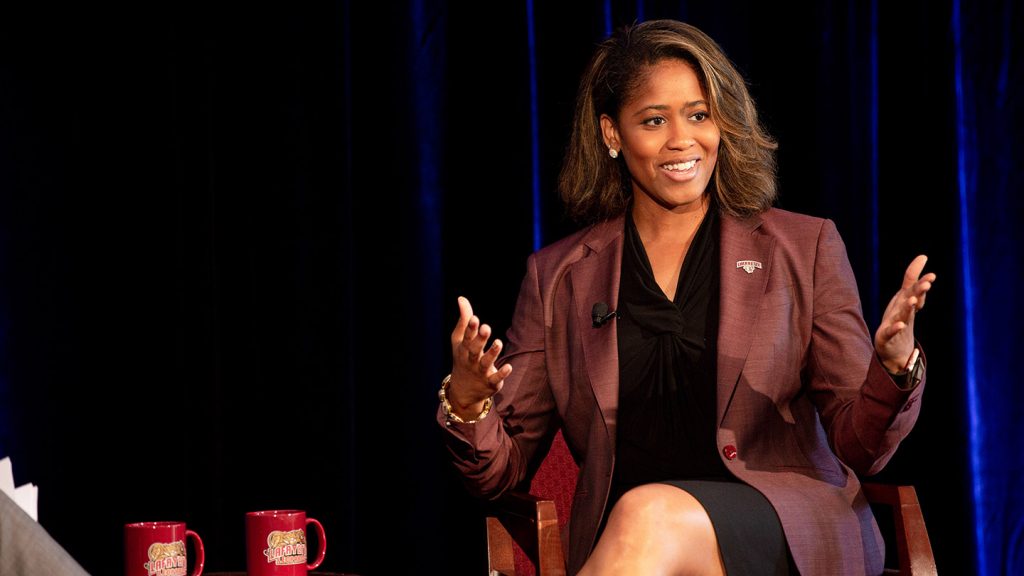
Sherryta Freeman, athletic director
“My mentor is Dr. Grace Calhoun, the athletic director at Penn. She hired me out of graduate school when she was working at Dartmouth. It was my first job in athletic administration. I’ve always admired her as a very intelligent, driven, polished, and empathetic person. When you are trying to find your way in your career early on, it’s so valuable to have someone like her to be an example. We went off to work at different schools, but then 10 years later, she hired me again to work with her at Penn. She really helped me develop my career. She provided stretch opportunities that helped me develop leadership skills and build my confidence as a sports professional.”
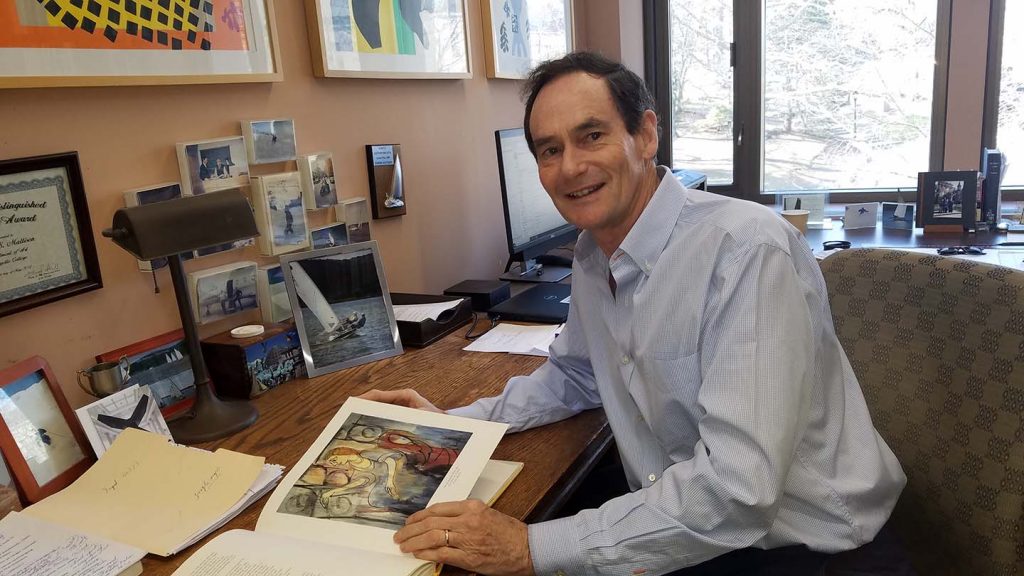
Bob Mattison, Marshall R. Metzger professor of art history
“Grace Hartigan was one of the major artists involved with abstract expressionism. I met her when I was a young art historian. She hadn’t received full acknowledgment of her talents. The movement was dominated by men. By working with her and writing about her, I learned about her creative drive. I became impressed by how she forged an identity for herself through her art, especially in that era. Through her, I could learn in a broader sense what the 1950s were about. She is an ongoing inspiration to me, not only as a talented artist, but also as a person. She was incredibly thoughtful and creative, and everything she did was of high quality.”
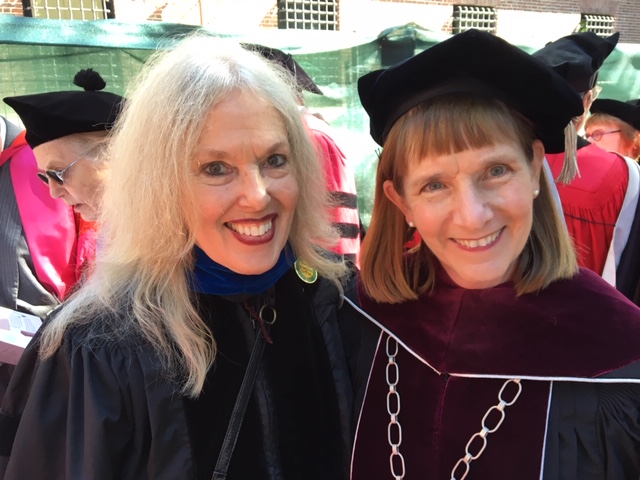
Alison Byerly, president
“Elaine Scarry was my Ph.D. dissertation advisor at the University of Pennsylvania, and she is now a distinguished professor at Harvard. She has been truly inspirational to me as a scholar and as a lovely person who takes a human and humane approach to intellectual life. Elaine has written on an amazingly wide range of topics and is a great thinker on any subject she applies her mind to. Her work is the embodiment of scholarship that really enriches the world and feels affirming and illuminating. You realize the world is a better place having her thoughts in it. As an advisor, she was generous in the way she embraced her students’ thoughts and ideas. She would let you follow any direction you wanted, and would help you to interrogate and refine your ideas—but always made you feel that they were unique and worthwhile. I feel very fortunate to have had that enormous support. It inspires me to try to pay it forward.”
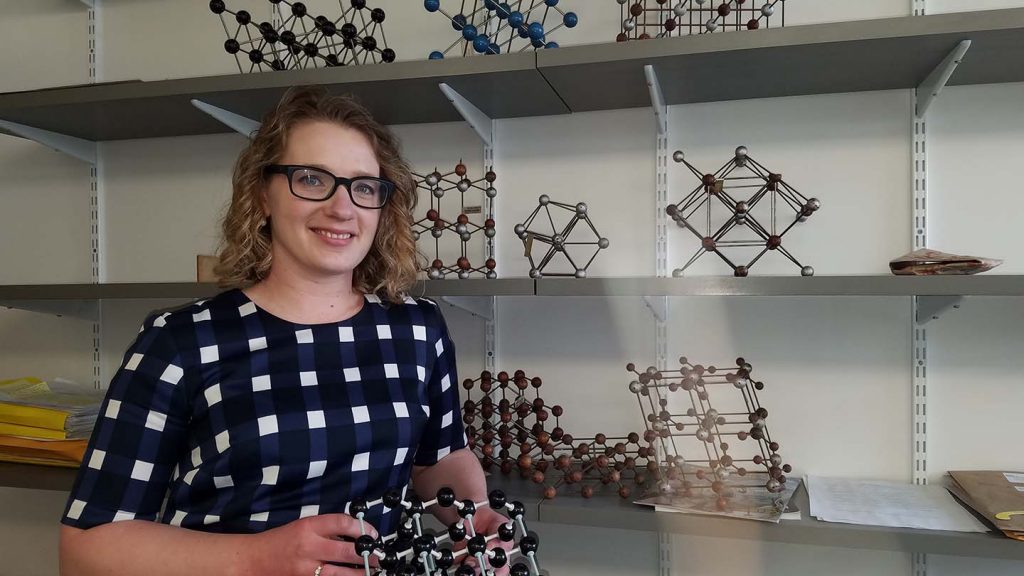
Annemarie Exarhos, assistant professor of physics
“I was fortunate to meet Mildred Dresselhaus, an accomplished physicist and pioneer in carbon and graphite research. She was a highly revered professor at MIT who was celebrated for her contributions to science. She really pushed for women and supported other women in STEM. She was always willing to talk with you and answer questions. I also appreciated seeing how true she was to herself. She was known for her characteristic red sweater and braids. In a world where there is often conformity, Millie did her own thing and she did it insanely well.”
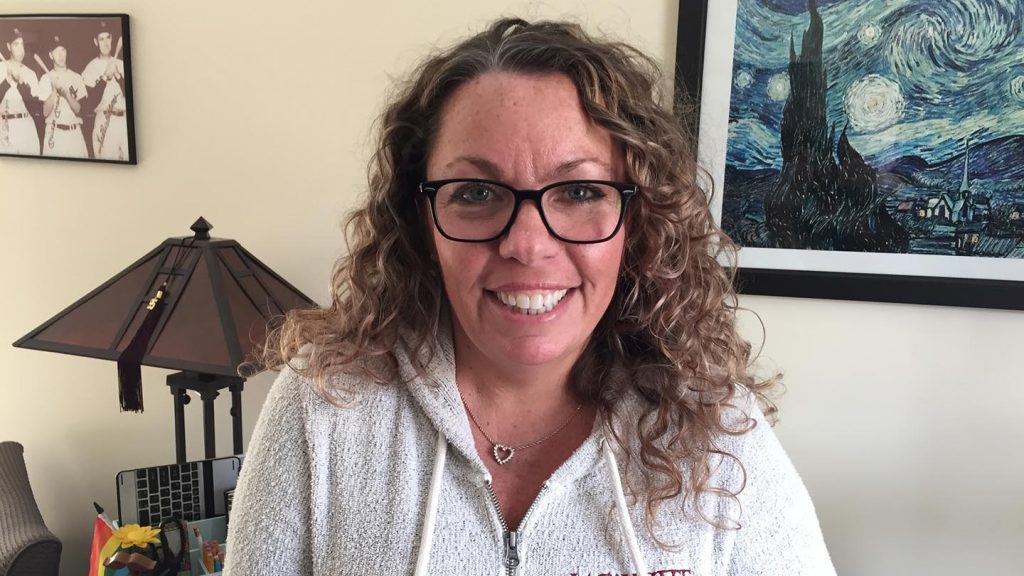
Erica D’Agostino, dean of advising
“The woman who always comes to my mind is Dr. Dorothy Lavinia Brown, physician, educator, and single mother. After growing up in an orphanage, Dr. Brown became the first black female surgeon in the south. She went on to become the first single woman in Tennessee to be granted the right to serve as an adoptive parent, and she was the first black woman to serve in the Tennessee state legislature. From the 1940s to the 1980s, she broke through glass ceilings at every turn, and all women and young girls can look up to her today and for decades to come. As a single mother working in education, I’m particularly struck by the accomplishments of Dr. Brown and hope she will be a role model for my daughters some day.”
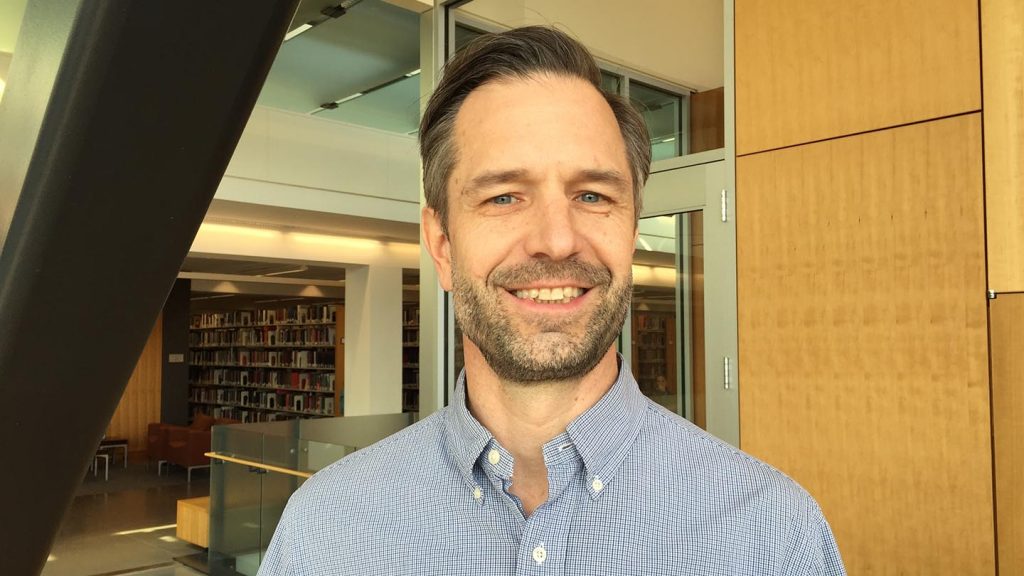
Markus Dubischar, classical civilization program chair
“Antigone of Thebes, the heroine of speaking to truth to power! Greek mythology is full of figures that have become western archetypes: the traveling adventurer Odysseus, the self-absorbed Narcissus, and many others. In the realm of mythological politics, Antigone towers above all. She is a young woman who challenged an autocrat whose edict conflicted with the eternal and divine laws of universal human morality. The final victory is Antigone’s. She has remained a shining beacon for political and social resistance movements.”
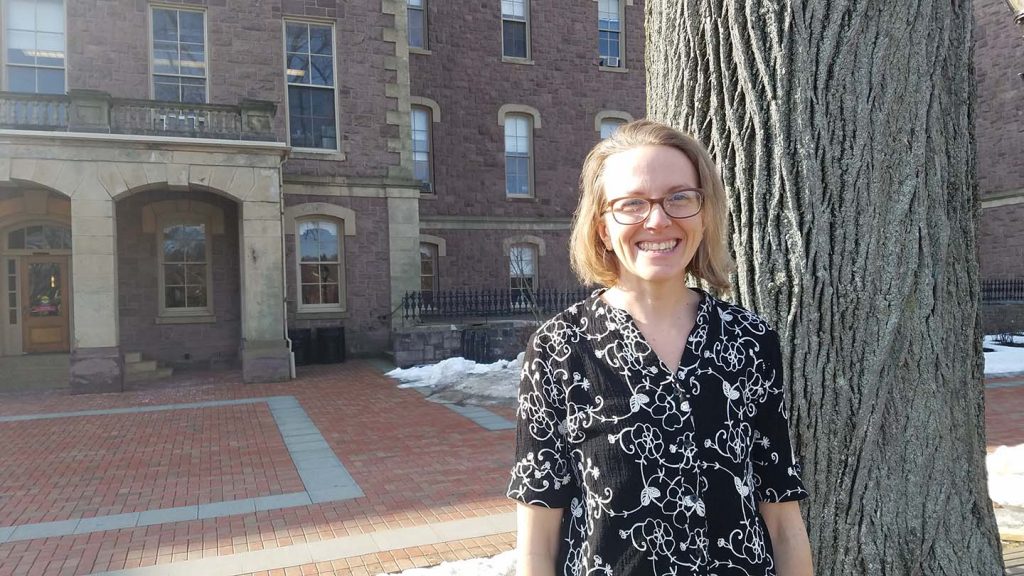
Lisa Miskelly, assistant director of food and farm
“Vandana Shiva is a farmer, activist, and seed saver in India who is known internationally for her work in educating people about the impacts of industrial agriculture. She has merged environmental activism with social activism. I learned about her while I was studying abroad in India, and she was a huge inspiration for me in wanting to farm and to look at farming not just in terms of the environment but in terms of social impact. In many cultures, women are primarily responsible for daily food production and preparation and are therefore disproportionately affected by ecological destruction. These women who see first-hand the impact of environmental degradation find empowerment through Vandana’s message and work.”
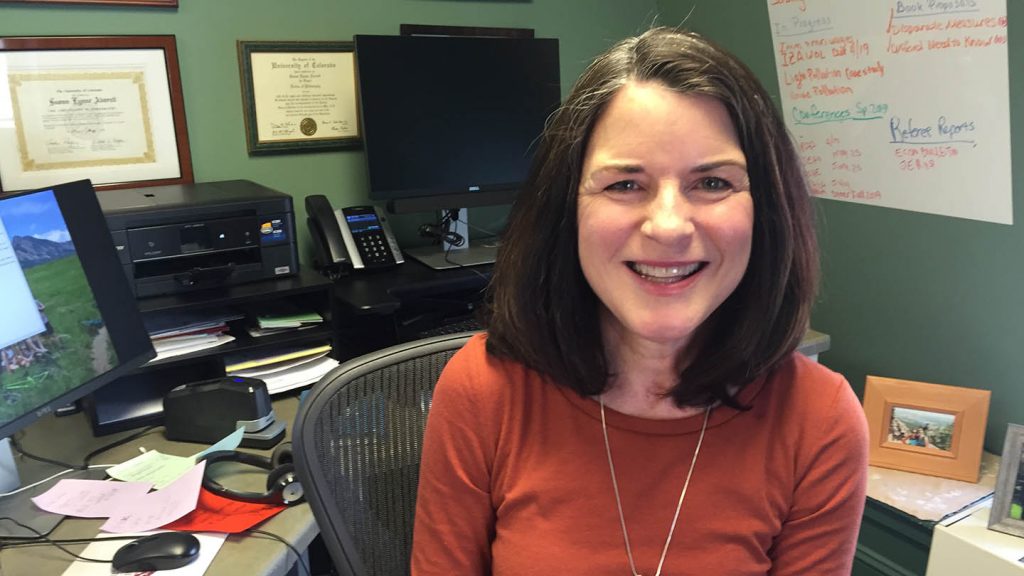
Susan Averett, Charles A. Dana professor of economics
“For Women’s History Month, I would like to honor my mentor and dissertation advisor, Elizabeth Peters. Liz is an accomplished economic demographer who has held faculty positions at the University of Colorado and Cornell University and most recently was in charge of the population program at the Urban Institute in Washington, D.C. Liz was instrumental in shaping my interests in researching women’s economic lives. Her consistent encouragement throughout the ups and downs of graduate school and her support as I made my way through the early stages of my career were instrumental in my success as a scholar. She led by example, always focusing on quality. Working with Liz meant that there was always one more regression to run and one more sentence to tweak. The result was always quality. She taught me to aim high, to stay engaged with professional colleagues, and to take risks with my scholarship. I will always be grateful for her support, which continues to this day.”
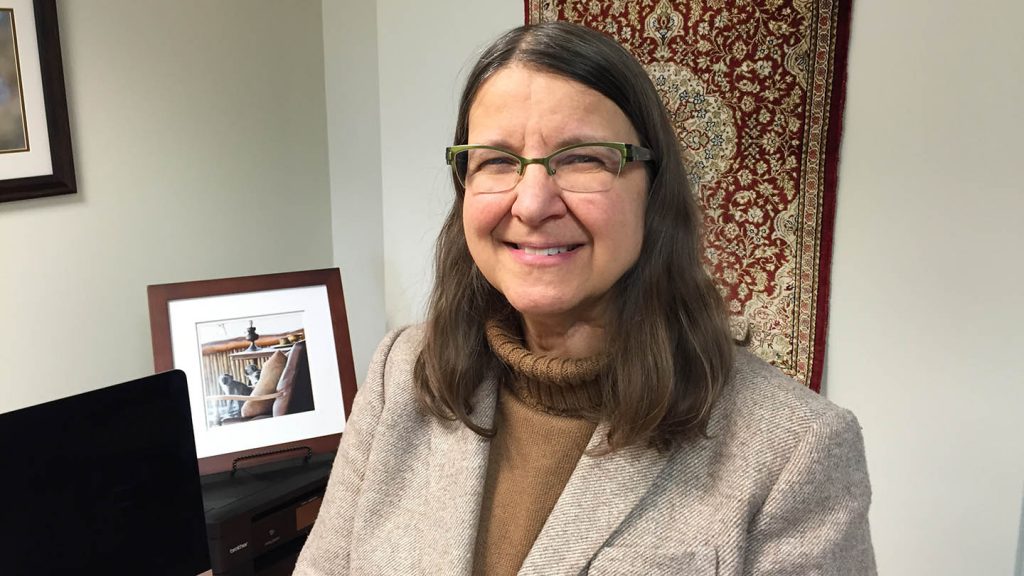
Joann Ordille, assistant professor of computer science
“When I was in graduate school, I attended a computer science conference where there were only a handful of women, including Anita Borg. It was hard to spot the women in such a big crowd, but Anita met some others in the women’s room. She’s quoted as saying every woman who entered the room stayed to talk, and eventually they decided we could all meet somewhere else. So, we met on a terrace and decided to create an email list, so we could all meet anytime we wanted. From there, Anita went on to create the systers mailing list of thousands of women in computing and a conference called the Grace Hopper Celebration of Women in Computing, named after computer scientist Grace Hopper, which now attracts more than 20,000 women and men yearly. Anita was passionate about encouraging women to pursue computer science as a career, and letting society know about the great contributions women can and do make in computing. Anita was my personal mentor and friend. She died young of an illness. Her life always calls out to me to say, ‘Look how much you can accomplish with passion, even in very little time.’”
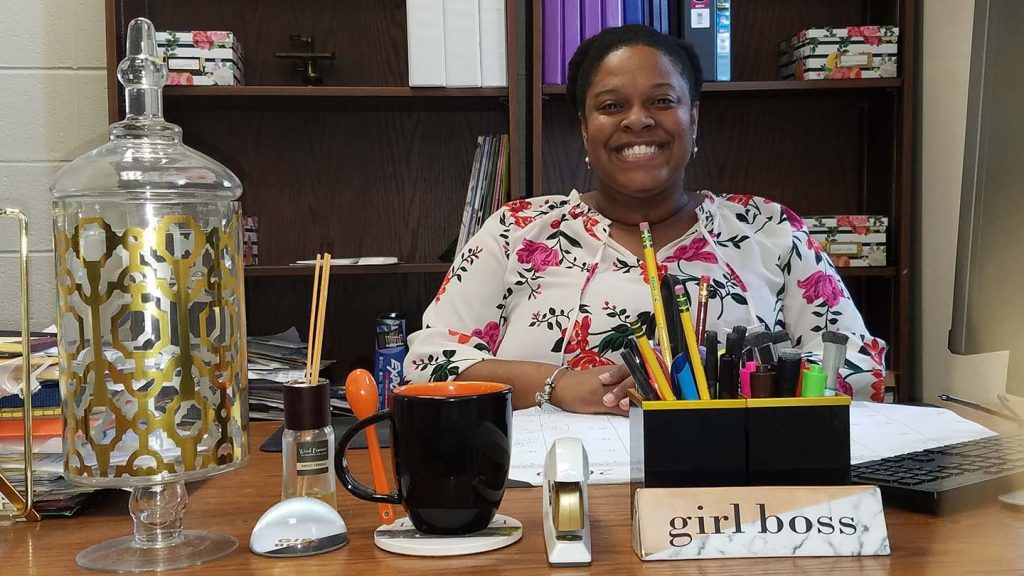
Khadijah Mitchell, assistant professor of biology
“Dr. Susanne M. Gollin is a human geneticist and public health genomics expert at the University of Pittsburgh. At the beginning of my scientific career, Susanne believed in me and saw my potential. She offered me my first cancer research opportunity and introduced me to the field of cancer health disparities, which is what I study today. Dr. Marina Ramirez-Alvarado is a biochemist and national leader in the training of future professors, especially women and students from diverse backgrounds. As a Ph.D. student, she told me it was OK to be an unconventional scientist and encouraged me to follow my dreams as a first-generation professor. I pay it forward by trying my best to inspire Lafayette students to do the same.”
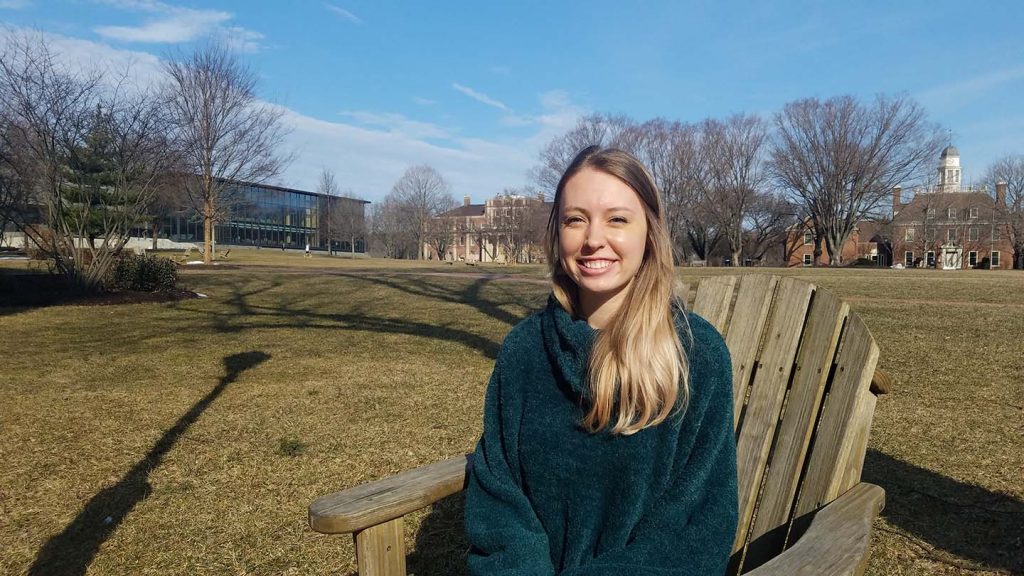
Kendall Roberson, sustainability fellow
“I worked for Erin Fuduric last summer. Erin and her sisters own a store called Given in Greenville, S.C., where they sell conscious goods. Erin uses the store to empower people who are purchasing the goods and to empower people who are making the goods. She is an impactful, caring person who made everyone in the store feel welcomed and encouraged. Eighty-five percent of global consumer purchases are made by women. We hold this incredibly powerful opportunity to purchase for good. Erin saw that and tapped into the triple bottom line: people, planet, profit. She uses her influence to help others, and I find that really inspiring.”
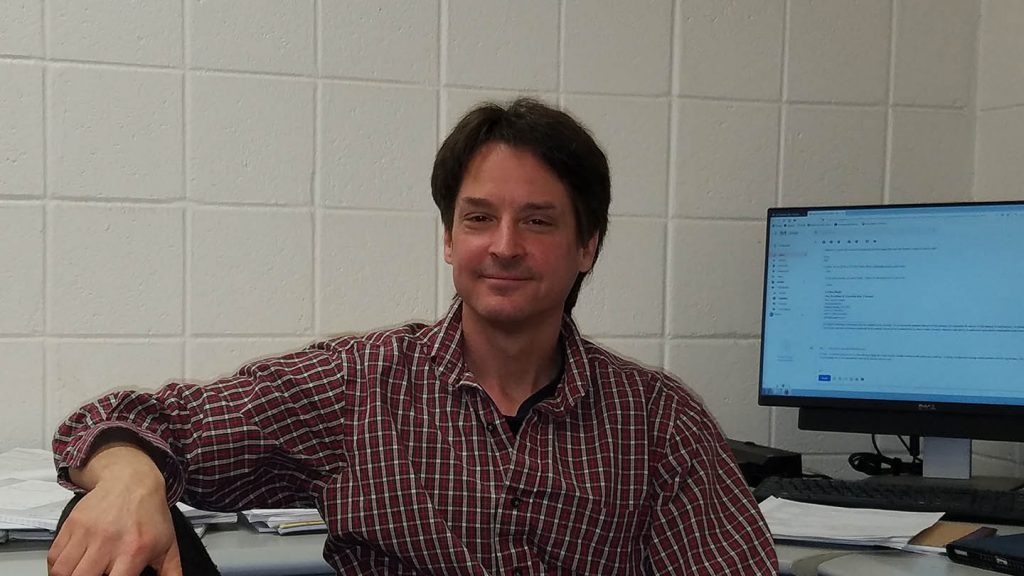
Bob Kurt, Kreider professor of biology
“I have always looked up to Dr. Olivera J. Finn, a very accomplished breast cancer researcher at the University of Pittsburgh. I became aware of her when I was in graduate school, and I knew I wanted to align myself with what she was doing, because she was doing great research and work with immune therapy. She was a role model for me. I have also been influenced by Suzanne Ostrand-Rosenberg and Polly Matzinger, who have made great contributions in biology. I have great respect for them and think it’s important to recognize that they are making important scientific contributions, but they are also changing the nature of those who are engaged in the field. They are making the scientific community a more open and welcoming place. I think that’s critical.”
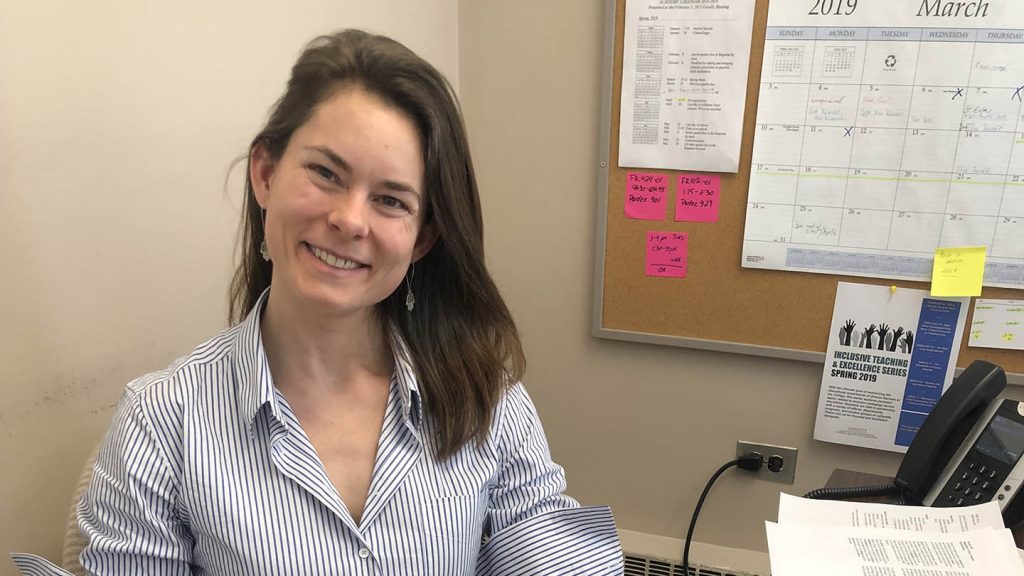
Annie de Saussure, assistant professor of French
“During my final year as a master’s student at University of Renens, I worked with Anne F. Garréta, a famous author and public intellectual figure in France. Garréta is someone who confronts gender norms and stereotypes in her literary work as well as in her own life. She wore the same outfit to teach everyday: black bomber jacket, black pants, black construction boots, black baggy sweatshirt, and, most infamously, black aviator sunglasses that she never removed, even indoors and at night. Her outward persona may have been intimidating to some (perhaps intentionally so), but it was inspirational for me. Garréta did not conform to anyone else’s expectations of how a woman should look or present herself. When I began applying to graduate schools in the U.S., Garréta was an ally and a mentor. She helped me through the entire process, from cover letter to offer negotiations. I don’t know if I would be where I am today without her guidance. Now that I am a professor myself, I have an even deeper appreciation for the time and energy she gave me. I do my best to pass that along to my own students. Most of all, I am reminded of the empowerment that comes from fully embracing who you are, from being unapologetically yourself. I think we all need to be reminded of that from time to time.”
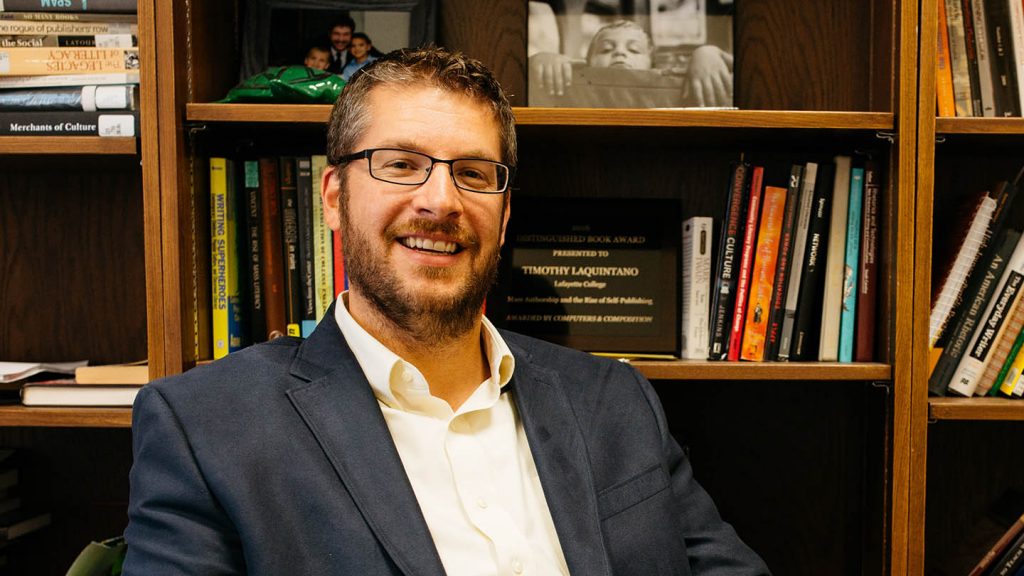
Tim Laquintano, associate professor of English
“I went to the University of Wisconsin to work on my Ph.D. with Deborah Brandt. At the time, she had just published Literacy in American Lives, a study of the history of literacy in 20th-century America, which won almost every book award in my field, including the $200,000 Grawemeyer Award in Education. It can be risky to move your life 1,000 miles to work with a well-known scholar. They can be inundated with work and speaking engagements. Some are notorious for ignoring their students. My experience with Professor Brandt was the opposite. In the last year of my Ph.D., she had five students on the job market, all of whom were completing dissertations with her. She took responsibility for writing letters of recommendations for us all, gave us mock interviews, and provided feedback for us on our dissertations. I cannot fathom how much work this was for her. As my dissertation deadline neared, I was emailing a rough draft of a chapter to Professor Brandt, when my office mate mentioned that she had sent a chapter to her advisor and had not received feedback in four months. Less than 24 hours later, I had my chapter back from Dr. Brandt, complete with detailed comments and extensive feedback for how to improve it. Let’s just say that for anyone familiar with the cultures of research institutions, that act alone shows profound dedication to students. Now retired, she will still read and comment on her students’ drafts. She is the teacher-scholar I admire most, one of the only Jedis I have ever met.”














3 Comments
I still remember sitting in Dr. Mary Roth’s office looking at the engineering degrees and awards on her wall and thinking “I want to be just like her.” This was early in the 1990’s and role models for women in engineering were few and far between and as a first-generation college student the academy was a wholly uncharted landscape. Since those early years she has continued to mentor, inspire and support me in achieving my own professional achievements. While I am proud of the collection of degrees and awards I have curated for my own wall; more importantly, I also try every day to pay forward Mary’s example of what a Lafayette education is really all about.
Two things are striking to me about this excellent article: One is of course learning about the importance of these female mentors and role models in the lives and careers of all these notable Lafayette faculty and administration people. Second, how can it be that there are no comments before mine regarding such an interesting piece on this vital subject? Are there Lafayette people out there listening?
I agree with Dr. Ruthizer.
Comments are closed.